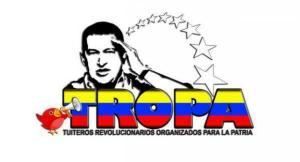How is our internet doing? In one word, badly

Beside the SIBCI, the communicational hegemony also uses outside organized groups like the TROPA: Organized Twitter Users for the Fatherland.
The Venezuela chapter of the recent “Freedom on the Net” report (by the NGO Freedom House) offers a pretty good summary of how the quality of Internet here is limited while its overall access continues to increase.
But instead of using a unified policy of repression, the Venezuelan State prefers to work on multiple levels (legal, technical, economical, etc.). Some of those measures are more subtle and selective than others.
The result is that the government can brag of both the growth of Internet users in the country and at the same time using multiple excuses to justify any legal limitations to the service itself (national sovereignty, protecting children’s wellbeing, guerra mediatica, among others).
First up, there’s the issue of the quality itself: Even if more people here are getting online, the average speed of Internet we use is really, really bad. To that, I may add another key aspect: the constant electrical blackouts and brownouts, which make the service worse.
Then we can found a tangled web of ambiguous legislation, targeted cyberwarfare, multiple technical failures and the increased presence of the communicational hegemony, both in its official form and in “unrelated” organized groups, which are allowed to act with impunity.
The result is a deteriorated online public sphere, where self-censorship is encouraged and harassment of dissent views is the new normal. To make matters worse, our new Chinese overlords are more than willing to provide new tools to tight the online screws further.
Caracas Chronicles is 100% reader-supported.
We’ve been able to hang on for 22 years in one of the craziest media landscapes in the world. We’ve seen different media outlets in Venezuela (and abroad) closing shop, something we’re looking to avoid at all costs. Your collaboration goes a long way in helping us weather the storm.
Donate




